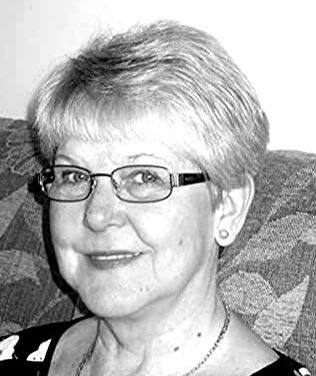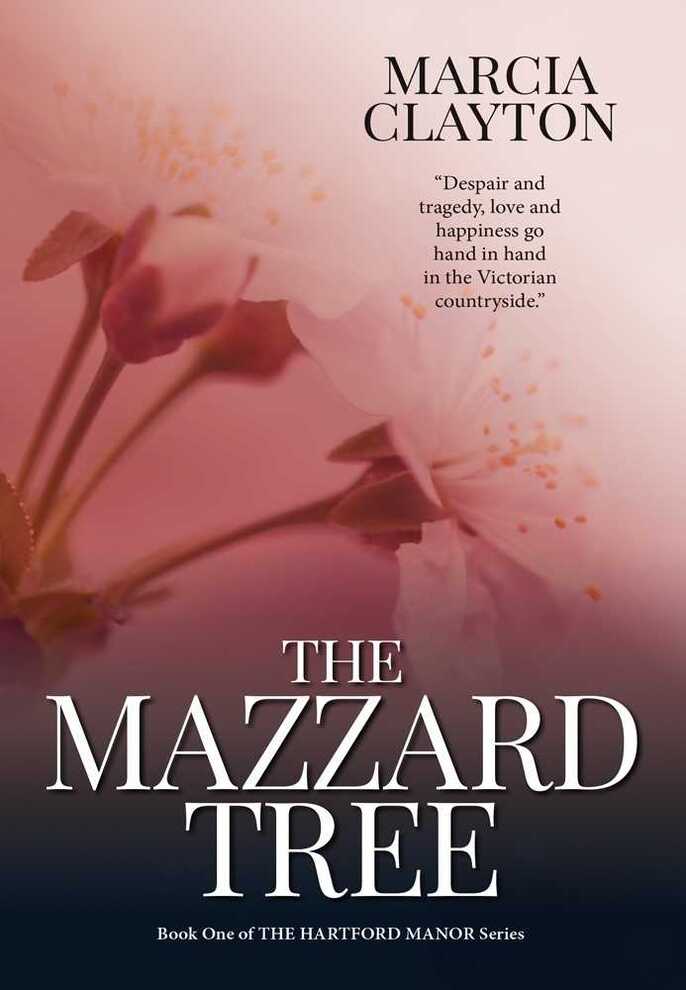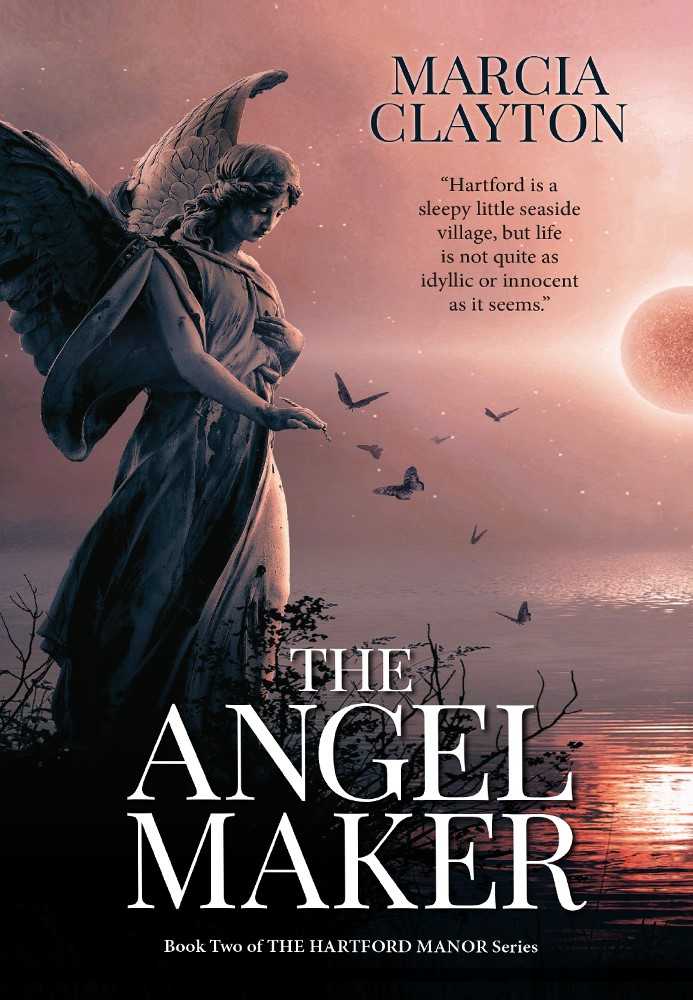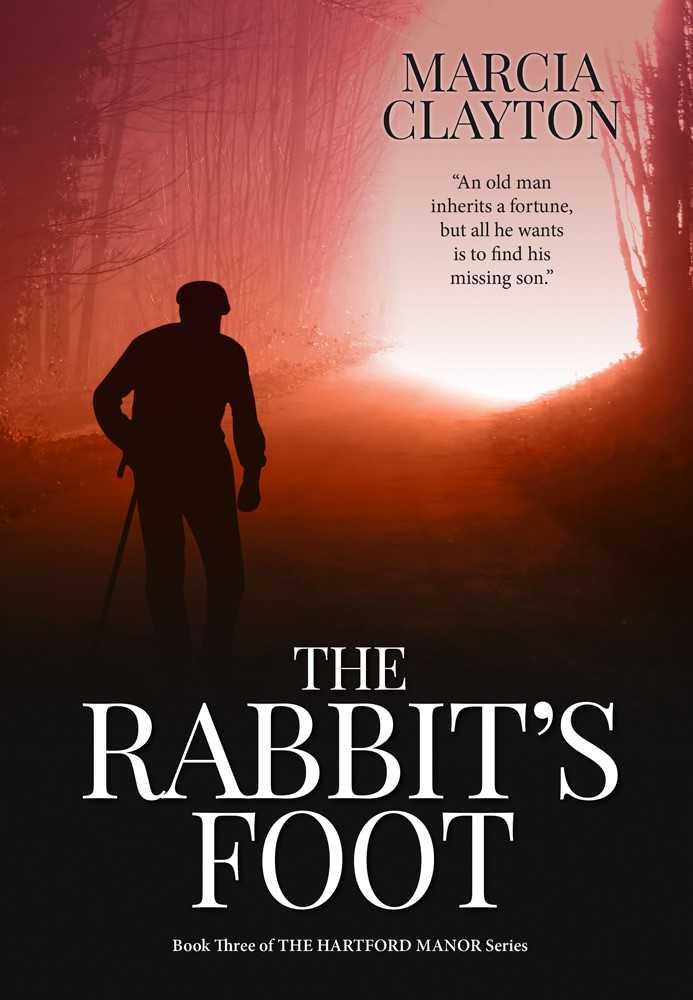
It gives me great pleasure to welcome Marcia Clayton onto the website today. Marcia has written three historical novels in her Hartford Manor Series that are set in North Devon.
Alex: Tell me a bit about yourself, Marcia.
Marcia: I am a farmer’s daughter and was raised in North Devon, a rural area in the South West of England. I left school at fifteen and worked in a bank for seven years, and then stayed at home for ten years caring for my three sons. As they grew older, I returned to college and took A levels in History and English Language and this kindled my interest in writing. I held various jobs over the years, but am now enjoying retirement with my husband, Bryan. We both enjoy walking and reading and are keen gardeners, managing an allotment, as well as a large garden.
Alex: Tell me a bit about yourself, Marcia.
Marcia: I am a farmer’s daughter and was raised in North Devon, a rural area in the South West of England. I left school at fifteen and worked in a bank for seven years, and then stayed at home for ten years caring for my three sons. As they grew older, I returned to college and took A levels in History and English Language and this kindled my interest in writing. I held various jobs over the years, but am now enjoying retirement with my husband, Bryan. We both enjoy walking and reading and are keen gardeners, managing an allotment, as well as a large garden.

Alex: How would you describe your writing, and are there particular themes that you like to explore?
Marcia: I’ve written three historical fiction books in my Hartford Manor Series. The inspiration for my first book, The Mazzard Tree came from my interest in family history. My mother was adopted and knew little of her birth family, so when my children started school, I began visiting the local record office to find out more. In studying parish registers, census returns and gravestones, I pieced together a family tree going back to the 1700s. In establishing which of the records belonged to my own ancestors, I was often drawn into other family histories. I found that by perusing the records, I could imagine what had happened in peoples’ lives. Although my books are works of fiction, some of the ideas originated from my family history research. I found my ancestors from the Victorian period the most interesting and decided to set my books in that time period.
Alex: Are you a writer that plans a detailed synopsis or do you set out with a vague idea and let the story unfold as you write?
Marcia: A bit of both really. My first novel, The Mazzard Tree was written over several years in spare moments of a busy life as the mum of three boys. I had a vague idea of the story but no real ending in mind. However, I soon realised that I needed to be more organised, and for the second half of the book, I planned out each chapter. My second book, The Angel Maker was written more methodically, with a clear plan and bullet points for each chapter before I started. I found this worked far better for me, though there were changes along the way. I also adopted this approach for my third book.
Marcia: I’ve written three historical fiction books in my Hartford Manor Series. The inspiration for my first book, The Mazzard Tree came from my interest in family history. My mother was adopted and knew little of her birth family, so when my children started school, I began visiting the local record office to find out more. In studying parish registers, census returns and gravestones, I pieced together a family tree going back to the 1700s. In establishing which of the records belonged to my own ancestors, I was often drawn into other family histories. I found that by perusing the records, I could imagine what had happened in peoples’ lives. Although my books are works of fiction, some of the ideas originated from my family history research. I found my ancestors from the Victorian period the most interesting and decided to set my books in that time period.
Alex: Are you a writer that plans a detailed synopsis or do you set out with a vague idea and let the story unfold as you write?
Marcia: A bit of both really. My first novel, The Mazzard Tree was written over several years in spare moments of a busy life as the mum of three boys. I had a vague idea of the story but no real ending in mind. However, I soon realised that I needed to be more organised, and for the second half of the book, I planned out each chapter. My second book, The Angel Maker was written more methodically, with a clear plan and bullet points for each chapter before I started. I found this worked far better for me, though there were changes along the way. I also adopted this approach for my third book.

Alex: Tell us about your latest novel.
Marcia: My third book in the series is The Rabbit’s Foot and it has just been released. Set against the harsh background of the rough, class-divided society of Victorian England, it compares the opulent lifestyle of the landed gentry with that of the poverty-stricken villagers. The Rabbit’s Foot tells the tale of how an old man, who has spent his life with barely a penny to his name, suddenly finds himself rich beyond his wildest dreams. However, there is only one thing that he truly wants, and that is to be reunited with his son, Marrok, whom he abandoned at the age of five.
Alex: What was the first book you read?
Marcia: As a child, the first book I can remember was called Mystery Mountain, and my dad read it to me nearly every night before I went to bed. I would think this was probably the first book I read, mainly because I must have known the words off by heart! I still have the book and continue to treasure it.
Alex: How much research do you do and what does it usually entail?
Marcia: I carry out a lot of research, as when writing historical fiction, it is essential that the facts are accurate. I love this part of writing a book, and often find myself side-tracked when I unearth something interesting. I use the internet a lot but also books from the library.
Alex: Do you ever base your characters on people you have encountered in real life?
Marcia: No, I’ve never based my characters on real people, though as I mentioned earlier, some of the inspiration for my books stems from my historical research. I came across some very colourful characters when researching my family tree and I would love to meet some of them, particularly my maternal great-grandfather. I think he would have quite a tale to tell.
Marcia: My third book in the series is The Rabbit’s Foot and it has just been released. Set against the harsh background of the rough, class-divided society of Victorian England, it compares the opulent lifestyle of the landed gentry with that of the poverty-stricken villagers. The Rabbit’s Foot tells the tale of how an old man, who has spent his life with barely a penny to his name, suddenly finds himself rich beyond his wildest dreams. However, there is only one thing that he truly wants, and that is to be reunited with his son, Marrok, whom he abandoned at the age of five.
Alex: What was the first book you read?
Marcia: As a child, the first book I can remember was called Mystery Mountain, and my dad read it to me nearly every night before I went to bed. I would think this was probably the first book I read, mainly because I must have known the words off by heart! I still have the book and continue to treasure it.
Alex: How much research do you do and what does it usually entail?
Marcia: I carry out a lot of research, as when writing historical fiction, it is essential that the facts are accurate. I love this part of writing a book, and often find myself side-tracked when I unearth something interesting. I use the internet a lot but also books from the library.
Alex: Do you ever base your characters on people you have encountered in real life?
Marcia: No, I’ve never based my characters on real people, though as I mentioned earlier, some of the inspiration for my books stems from my historical research. I came across some very colourful characters when researching my family tree and I would love to meet some of them, particularly my maternal great-grandfather. I think he would have quite a tale to tell.

Alex: Which was the last book you read that blew you away?
Marcia: I like reading all sorts of books, but the last one that really blew me away was called Remember Me by Lesley Pearse. The book is set in the late 18th century and is based on a true story. Mary Broad is just eighteen when, in desperate poverty, she steals a silk hat and is sentenced to death. Given a last-minute reprieve, she sets sail with five hundred other convicts bound for Australia. Mary is faced with terrible conditions on board the ship and then unknown terrors of her strange new home.
Alex: How do you market your books?
Marcia: I advertise my books on social media and locally in newsletters etc. I only started to market them at all after I had written my second book so I still have a lot to learn. Now that I have published my third book I may spend some time looking at various courses which give advice about advertising. I’m self-published so my advertising budget is limited. I have a website where I blog about various topics and also offer a free short story to encourage people to sign up to my newsletters.
My short story is about Amelia, a little girl of 4, who is abandoned in Victorian London, with her brothers Joseph and Matthew. The story is a spin-off from my first historical romance book, The Mazzard Tree, which features all three children. You can download the story here:
https://marciaclayton.co.uk/amelia-free-download/
Alex: What are your interests aside from writing? And what do you do to unwind?
Marcia: I enjoy gardening and walking. My husband and I usually walk around 3-4 miles once or twice a week. Living in Devon we are spoilt for choice as we have many beaches close by and also Exmoor and Dartmoor to explore. I like researching my family history, and concentrate on this during the winter months, when it is less tempting to venture out in the poor weather. I am particularly looking forward to the 1921 census which will be released in January 2021. I enjoy a glass of wine or two when socialising with family and friends, and often take part in a quiz at the local pub.
Alex: Which authors do you particularly admire and why?
Marcia: I’ve always been a fan of Catherine Cookson who wrote such an amazing number of historical fiction books and some of my readers have compared my writing style with hers, which I take as a great compliment. Another favourite is Winston Graham who wrote the Poldark Series, based in Cornwall in the late 1700s. As well as being an intriguing story, these books are full of historical fact. However, I also like crime and thriller novels and my favourite writers of this genre are Lee Child and Anne Cleeves.
Alex; Thank you so much for sharing your writing journey with us Marcia. Your Hartford Manor Series sounds fascinating.
Marcia: It's my pleasure, Alex. Thank you for this opportunity.
Marcia: I like reading all sorts of books, but the last one that really blew me away was called Remember Me by Lesley Pearse. The book is set in the late 18th century and is based on a true story. Mary Broad is just eighteen when, in desperate poverty, she steals a silk hat and is sentenced to death. Given a last-minute reprieve, she sets sail with five hundred other convicts bound for Australia. Mary is faced with terrible conditions on board the ship and then unknown terrors of her strange new home.
Alex: How do you market your books?
Marcia: I advertise my books on social media and locally in newsletters etc. I only started to market them at all after I had written my second book so I still have a lot to learn. Now that I have published my third book I may spend some time looking at various courses which give advice about advertising. I’m self-published so my advertising budget is limited. I have a website where I blog about various topics and also offer a free short story to encourage people to sign up to my newsletters.
My short story is about Amelia, a little girl of 4, who is abandoned in Victorian London, with her brothers Joseph and Matthew. The story is a spin-off from my first historical romance book, The Mazzard Tree, which features all three children. You can download the story here:
https://marciaclayton.co.uk/amelia-free-download/
Alex: What are your interests aside from writing? And what do you do to unwind?
Marcia: I enjoy gardening and walking. My husband and I usually walk around 3-4 miles once or twice a week. Living in Devon we are spoilt for choice as we have many beaches close by and also Exmoor and Dartmoor to explore. I like researching my family history, and concentrate on this during the winter months, when it is less tempting to venture out in the poor weather. I am particularly looking forward to the 1921 census which will be released in January 2021. I enjoy a glass of wine or two when socialising with family and friends, and often take part in a quiz at the local pub.
Alex: Which authors do you particularly admire and why?
Marcia: I’ve always been a fan of Catherine Cookson who wrote such an amazing number of historical fiction books and some of my readers have compared my writing style with hers, which I take as a great compliment. Another favourite is Winston Graham who wrote the Poldark Series, based in Cornwall in the late 1700s. As well as being an intriguing story, these books are full of historical fact. However, I also like crime and thriller novels and my favourite writers of this genre are Lee Child and Anne Cleeves.
Alex; Thank you so much for sharing your writing journey with us Marcia. Your Hartford Manor Series sounds fascinating.
Marcia: It's my pleasure, Alex. Thank you for this opportunity.
